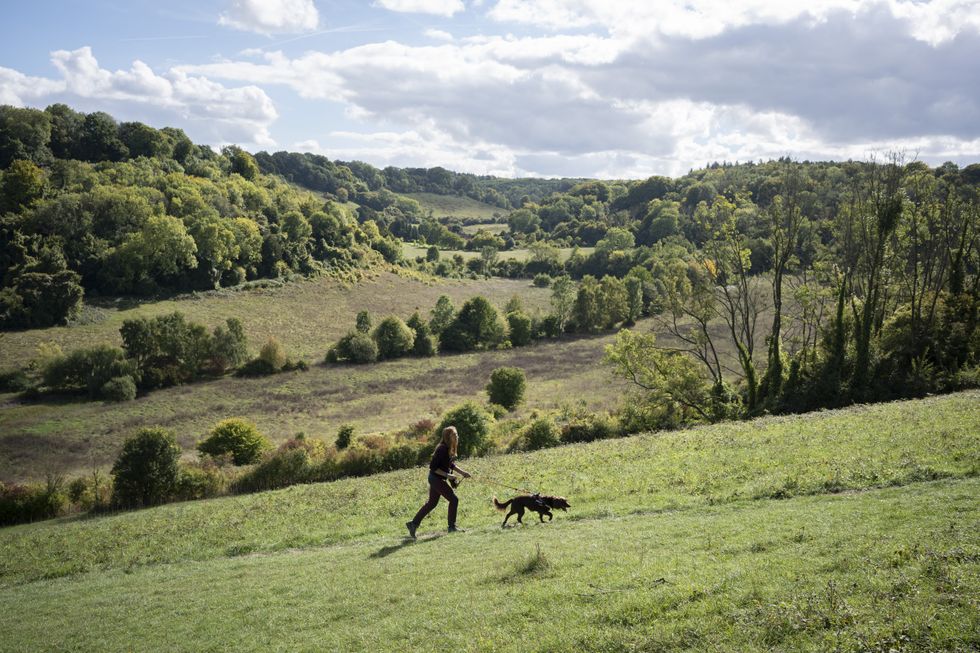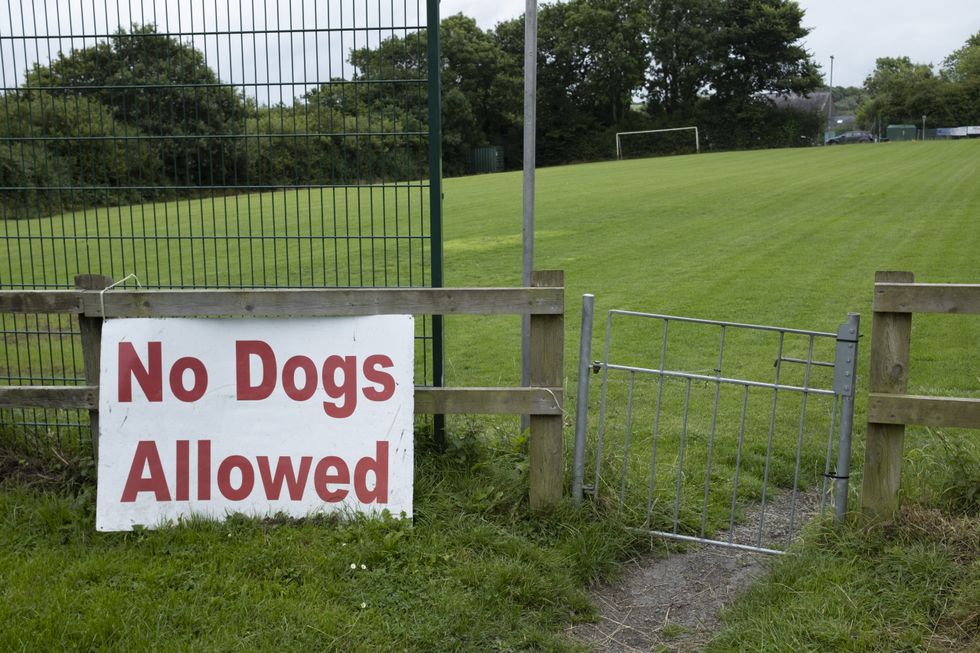Susanna Siddell
Guest Reporter
Taxpayers have been left "furious" after a report - which suggested banning dogs from parts of the countryside in a bid to make Wales more 'anti-racist' - cost an eye-watering £5,000.
The document, commissioned from campaign group Climate Cymru BAME, was put together as part of the Labour's ambitious aim to end racism in Wales by 2030.
The controversial recommendations, which included creating "dog-free areas" to make local green spaces more inclusive, have sparked widespread mockery and anger.
The report's cost was revealed through Freedom of Information requests, and has prompted fresh criticism of the Welsh Government's spending priorities.

The report, which sought to assess "racism relating to climate change, environment, and rural affairs", analysed feedback from focus groups with ethnic minorities.
A black female participant said that she felt unsafe with the presence of dogs, while others reported concerns about dog fouling.
Additionally, the document highlighted that some ethnic minorities perceived allotment gardening as being "dominated by middle-aged white women".
Other issues that had been raised included poor quality of green spaces in areas with larger ethnic minority populations and limited public transport access to rural areas.
The report expressed concerns about "the lack of understanding and relationships by the wider white population particularly in rural areas".
LATEST DEVELOPMENTS:
Investigations campaign manager at the TaxPayers' Alliance Joanna Marchong criticised the spending, saying: "Taxpayers will be furious about this complete waste of precious resources."
She added: "The Welsh government continually demands more cash from Westminster, yet they've managed to spend thousands of pounds on a report with absolutely no value or merit other than as a source of comedy."
Former Welsh Tory leader Andrew RT Davies also dismissed the report as "virtual signalling nonsense".
Climate Cymru BAME, which produced the report, consists of around 20 members, including students and professionals interested in environmental protection.
However, the Welsh Government strongly rejected suggestions it would implement the dog ban recommendation.
A spokesman said: "There are no plans to ban dogs from the countryside and any suggestion otherwise is inaccurate and a complete misrepresentation of this report."

They explained the document's purpose was to understand existing information about ethnic minority people's relationship with environmental matters and identify evidence gaps.
The spokesman also emphasised that the comments highlighted in media coverage were feedback from people asked for their views, not Welsh Government proposals.
The Welsh Government spokesman added: "There are no plans to ban dogs from the countryside and any suggestion otherwise is inaccurate and a complete misrepresentation of this report which sought to understand what information was already available on the relationship between ethnic minority people and environmental matters and where there were evidence gaps.
"It gathered information directly from ethnic minority people in Wales. Comments highlighted by the media are feedback from people asked their views and not Welsh Government proposals.
"The Welsh Government is committed to creating an anti-racist nation by 2030. Our Anti-racist Wales Action Plan is built on the values of anti-racism and calls for zero tolerance of all racial inequality."
Find Out More...
The document, commissioned from campaign group Climate Cymru BAME, was put together as part of the Labour's ambitious aim to end racism in Wales by 2030.
The controversial recommendations, which included creating "dog-free areas" to make local green spaces more inclusive, have sparked widespread mockery and anger.
The report's cost was revealed through Freedom of Information requests, and has prompted fresh criticism of the Welsh Government's spending priorities.

The report, which sought to assess "racism relating to climate change, environment, and rural affairs", analysed feedback from focus groups with ethnic minorities.
A black female participant said that she felt unsafe with the presence of dogs, while others reported concerns about dog fouling.
Additionally, the document highlighted that some ethnic minorities perceived allotment gardening as being "dominated by middle-aged white women".
Other issues that had been raised included poor quality of green spaces in areas with larger ethnic minority populations and limited public transport access to rural areas.
The report expressed concerns about "the lack of understanding and relationships by the wider white population particularly in rural areas".
LATEST DEVELOPMENTS:
- Pensioner slams Reeves for 'stealing retirement' after £640k inheritance tax bill: 'Unjust!'
- Britons still face 40% inheritance tax bill despite avoiding Labour's IHT raid on pensions
- REVEALED: The Labour MPs selling out fishing communities if Starmer buckles to EU in Brexit betrayal
Investigations campaign manager at the TaxPayers' Alliance Joanna Marchong criticised the spending, saying: "Taxpayers will be furious about this complete waste of precious resources."
She added: "The Welsh government continually demands more cash from Westminster, yet they've managed to spend thousands of pounds on a report with absolutely no value or merit other than as a source of comedy."
Former Welsh Tory leader Andrew RT Davies also dismissed the report as "virtual signalling nonsense".
Climate Cymru BAME, which produced the report, consists of around 20 members, including students and professionals interested in environmental protection.
However, the Welsh Government strongly rejected suggestions it would implement the dog ban recommendation.
A spokesman said: "There are no plans to ban dogs from the countryside and any suggestion otherwise is inaccurate and a complete misrepresentation of this report."

They explained the document's purpose was to understand existing information about ethnic minority people's relationship with environmental matters and identify evidence gaps.
The spokesman also emphasised that the comments highlighted in media coverage were feedback from people asked for their views, not Welsh Government proposals.
The Welsh Government spokesman added: "There are no plans to ban dogs from the countryside and any suggestion otherwise is inaccurate and a complete misrepresentation of this report which sought to understand what information was already available on the relationship between ethnic minority people and environmental matters and where there were evidence gaps.
"It gathered information directly from ethnic minority people in Wales. Comments highlighted by the media are feedback from people asked their views and not Welsh Government proposals.
"The Welsh Government is committed to creating an anti-racist nation by 2030. Our Anti-racist Wales Action Plan is built on the values of anti-racism and calls for zero tolerance of all racial inequality."
Find Out More...